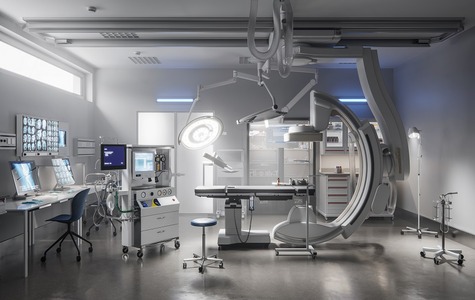- Medical Devices
- Friday, 04 Oct 2019
A Revolutionary Supercomputer by Dell Technologies to instigate New Alzheimer’s disease Breakthrough
Dell Technologies publicizes one of the principal computational projects for The University of Queensland’s Dell Technologies HPC (high-performance computing) system possibly will facilitate a non-invasive disease-altering approach for Alzheimer’s disease.
The high-performance computing system, developed by Dell Technologies for Research Computing Centre (RCC) of the university, is a GPU-enhanced supercomputer. GPUs, along with considerably added cores than the CPUs, are suitable for treating massive volumes of computational jobs parallelly, together with demanding tasks like data visualization as well as ML (machine learning). Also, it is used for modelling probable cures for a few of the supreme incapacitating sicknesses, including Alzheimer’s disease.
The Queensland Brain Institute, which is the neuroscience research association of the university has been utilizing the Wiener system for modelling the actions of ultrasound by means of an investigation technique known as FEM (Finite Element Method). The modelling helps in analyzing the readings of every single brain elements when an ultrasound passes via skull.
It is expected that the ultrasound may perhaps be utilized for temporarily permitting the direct transfer of therapeutic drugs to the brain, something that is not presently probable because of the existence of a blood-brain obstruction followed by activating the cells that might digest the plaques having Alzheimer’s disease hallmark. The favorable outcomes may certainly now will be established in a sheep study, an animal having alike human skull properties. Also, might be involved in emerging treatments that stop or else standby degeneration, instead of mere symptoms of relieving.
As per the statement of Chris Kelly, vice president, Infrastructure Solutions Group, Dell Technologies, Asia Pacific and Japan “Australia prides itself on its research achievements, especially in medicine. With this supercomputer, the University of Queensland can harness machine learning to drive innovation, across a broad range of use cases that previously wasn’t possible. We’re honored to play our part in the resulting discoveries that can change lives for the better.”
Rising to Meet Demand
This exploration is only amongst the Weiner’s several assignments. Demand towards implementing the supercomputer within the projects all over the university has directed the development of system’s power & size, letting for an extensive applications, comprising psychological testing, climate modelling & learning as well as disease identification.
Jake Carroll, chief technology officer, Research Computing Centre at The University of Queensland, states that, “It’s become a whole ecosystem. Wiener has become a plethora of massive machine learning and deep learning capabilities in the organization. It’s the focal point of AI computing infrastructure at The University of Queensland.”
Moreover, Wiener supercomputer even facilitates the university’s LLSM (lattice light sheet microscope), via a technique for image restoration known as de-convolution for offering perfect, real-time 4D biology imaging.
Remaining over the Prominent Edge
The Wiener system, originally developed over the servers of Dell EMC PowerEdge R740 delivered a dependable building block intended for the data sets processing across approx. 15 compute as well as analysis nodes, with two added nodes for visualization.
Dell Technologies delivered a novel arrangement factor for enhanced computing by means of a PowerEdge C4140 platform which didn’t make use of a PCI Express switch for getting the info back to the CPUs, resultant in nearly 11 percent quicker training for machine learning, in addition to permitting for lesser latency intermodal communication for distributed DL (deep learning) workloads. Together, all these offered measured competitive capability to the university.
Related Industry Updates
Healthcare BPO Services Market 2021-2027 SWOT Analysis, Business Growth Opportunities by Top Companies : Xerox Corporation, GeBBS Healthcare Solutions, WNS (Holdings) Ltd.
Mar 23, 2021
Home Diagnostics for Urinary Tract Infection Market Global Industry Analysis & Upcoming Trends and Opportunities Up to 2027
Jun 23, 2020
dPCR and qPCR market Size, Growth, Analysis and Forecast of 2025
Jan 04, 2021
Europe Advanced Medical Stopcock Market during 2019-2027 with Top Key Players Like B. BRAUN MELSUNGEN AG, SMITHS MEDICAL
Oct 22, 2020
Europe Advanced Medical Stopcock Market Outlook, Strategies, Manufacturers, Countries, Type and Application, Global Forecast To 2027
Aug 11, 2020
Growing Demand for Minimally Invasive Procedures Boosts Aortic Stent Grafts Market
Mar 22, 2023
Australia and New Zealand Point-of-Care Diagnostic Ultrasound Market is expected to reach US$ 83.53 million by 2030
Jan 18, 2024
